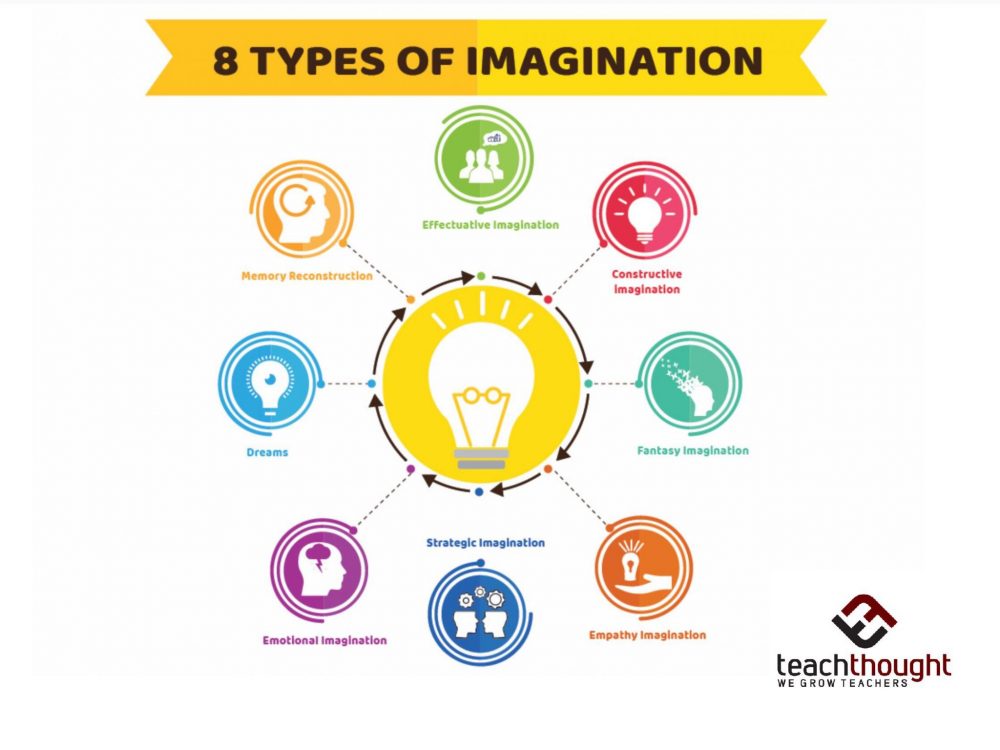8 Types Of Imagination
by TeachThought Staff
Imagination is critical to innovation and learning–but what exactly is it?
Dr. Murray Hunter of the University of Malaysia Perlis explains that imagination is, in part, about filling in gaps in our knowledge.
“Imagination is the ability to form mental images, phonological passages, analogies, or narratives of something that is not perceived through our senses. Imagination is a manifestation of our memory and enables us to scrutinize our past and construct hypothetical future scenarios that do not yet but could exist.
Imagination also gives us the ability to see things from other points of view and empathize with others. Imagination extends our experience and thoughts, enabling a personal construction of a worldview that lowers our sense of uncertainty. In this way, our imagination fills in the gaps within our knowledge enabling us to create mental maps that make meaning out of the ambiguities of situations we face where information is lacking, which is an important function of our memory management. This partly explains why people react differently to what they see due to the unique interpretations they make based on different prior knowledge and experience. Imagination enables us to create new meanings from cognitive cues or stimuli within the environment, which on occasions can lead to new insights.”
See also 27 Ideas For Students Who Finish Their Work Early
And, Dr. Hunter explains, it’s not always a conscious process.
“Recent research has shown that the brain periodically shifts phase locking during a person’s consciousness10, where neural networks activate and these brief periods may be enough to allow the dominant left hemisphere give way to the right hemisphere, enabling a person to see the environment, problem or issue from a new perspective.”
Below, Dr. Hunter has offered eight types of imagination we use on a daily basis.
8 Types of Imagination
1. Effectuative Imagination combines information together to synergize new concepts and ideas.
2. Intellectual (or Constructive) Imagination is utilized when considering and developing hypotheses from different pieces of information or pondering over various issues of meaning say in the areas of philosophy, management, or politics, etc.
3. Imaginative Fantasy Imagination creates and develops stories, pictures, poems, stage-plays, and the building of the esoteric, etc.
4. Empathy Imagination helps a person know emotionally what others are experiencing from their frame and reference.
5. Strategic Imagination is concerned about vision of ‘what could be’, the ability to recognize and evaluate opportunities by turning them into mental scenarios…
6. Emotional Imagination is concerned with manifesting emotional dispositions and extending them into emotional scenarios.
7. Dreams are an unconscious form of imagination made up of images, ideas, emotions, and sensations that occur during certain stages of sleep.
8. Memory Reconstruction is the process of retrieving our memory of people, objects, and events.
You can read of Dr. Hunter’s take on different types of imagination here.

